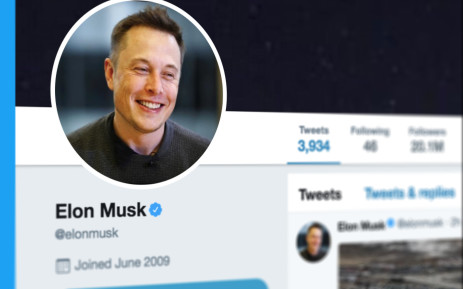On April 4, the world’s richest man, Elon Musk, bought roughly 9.2% of Twitter’s stocks, immediately making him one of the company’s largest shareholders. Following this acquisition, Musk released a series of tweets over the course of the month signaling his desire to have a stronger influence in Twitter’s course of action as a company. Within the month, Musk successfully struck a deal to buy Twitter at 54.20 USD per share in a transaction valued at 44 billion USD. In what seems like a fever dream, a single person now has supreme control over one of the most influential social media platforms.

While it seems almost impossible to imagine the ultra-rich living any aspect of their life similar to the way we ordinary people do, that hasn’t stopped us from attempting to put ourselves in their shoes. We all remember the parallels that flunking students made between themselves and Bill Gates, who dropped out of university. A small caveat though, Gates dropped out of Harvard to start Microsoft, not because he was failing college algebra. Deep down, we know that the commonalities we try to make with the ultra-rich are no more than stories. The mystique of Musk lies in the fact that he has made that story more believable than any other billionaire ever has. Through his casual interactions on Twitter, often tweeting memes that endeared him to the general public, he successfully crafted an image of a harmless, well-meaning hero that will defend our right to free speech. Elon Musk is one of us — he only happens to be the richest person in the entire world.
Granted that he is an avid Twitter user, Musk’s acquisition of the social media platform still seemingly came out of nowhere. It’s illogical to think that he’s spending 44 billion USD on a company that has failed to turn a profit for eight out of the past ten years just because he likes to tweet memes. Compared to other social media platforms, Twitter only has a meager 290 million monthly active users. What’s interesting, however, is how much of a role Twitter has played in forming political narratives. Misinformation is rampant on the platform and political figures have taken advantage of this to further their agendas. Twitter’s ability to shape political narratives is the reason why Musk has shown such great interest on the social media platform. According to the man himself, “Free speech is the bedrock of a functioning democracy, and Twitter is the digital town square where matters vital to the future of humanity are debated.” However, if we all view Twitter as such, how convenient is it that he can now peddle his own beliefs as ones that have been forged by constant debate among everyone in every corner of the world?
Despite some supporting Musk’s vision for free speech with enthusiasm, many have expressed concerns for the negative repercussions it may bring about. Inferring from Musk’s words, it is expected that content and user moderation will be adjusted to a minimum, which likely will lead to a further proliferation of misinformation and aggression on the social media platform. These concerns amplify if Musk takes Twitter private, diminishing the company’s transparency and accountability. In response to his critics, Musk claims that Twitter will be a company not afraid of receiving hate from both sides of the political spectrum, stating that he hopes even his worst critics remain on Twitter in the spirit of free speech. Moreover, under his leadership, Musk hopes that discussions on Twitter equally anger both the far left and far right — only then can he say that he has achieved his vision. The danger of this is that he views the political spectrum from an American perspective. In a country in which the far right has been so radicalized that they cannot distinguish the moderate from the far right, it’s not difficult to see how the platform could be even more susceptible to dangerous rhetoric under Musk’s leadership.
Elon Musk is a genius and a widely successful entrepreneur. What he is not, however, is a good judge of free speech. No single person can be. No matter how much Musk tries to sell the story that his actions are motivated by his desire to protect free speech, we should remain wary of the fact that one person can have total control of an entire social media platform. Former US Secretary of Labor Rober Reich couldn’t have said it any better: “When billionaires like Elon Musk justify their motives by using ‘freedom’, beware. What they actually seek is freedom from accountability.”

